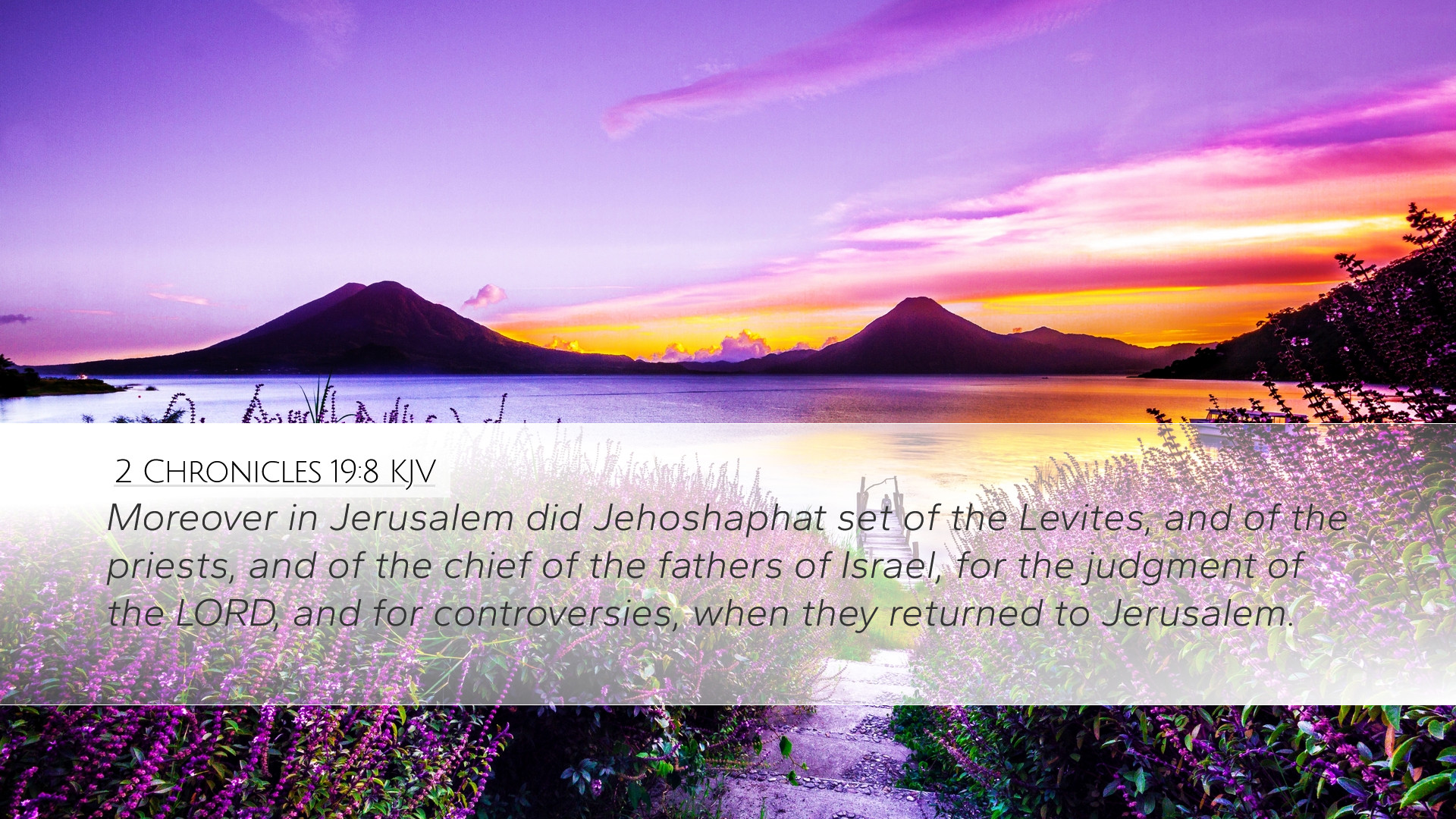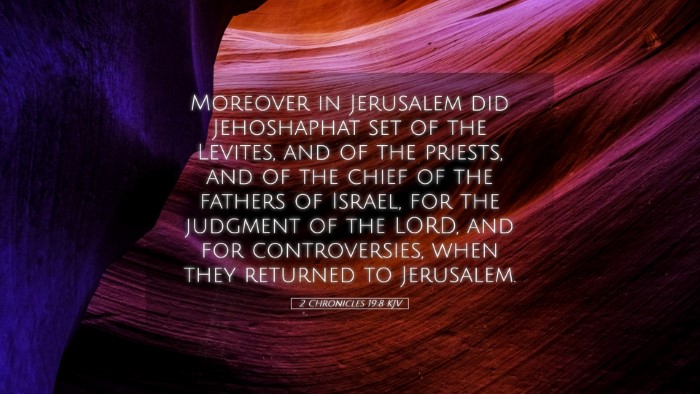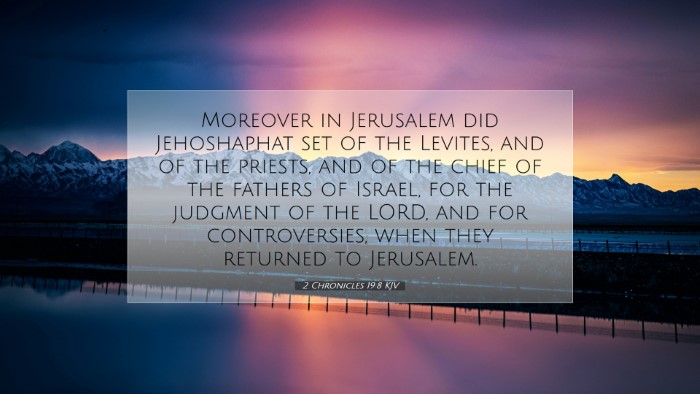Commentary on 2 Chronicles 19:8
Verse: "Moreover in Jerusalem did Jehoshaphat set of the Levites and of the priests, and of the chief of the fathers of Israel, for the judgment of the Lord, and for controversies, when they returned to Jerusalem."
Introduction
This verse occurs during the reign of King Jehoshaphat of Judah, who is remembered for his efforts to restore true worship, reform the judiciary, and secure the nation against outside aggression. The establishment of judges to hear both civil and ecclesiastical matters, as well as to address controversies, reflects Jehoshaphat's desire for a just and godly rule.
Exegetical Insights
The act of Jehoshaphat in setting judges signifies a distinct move toward judicial righteousness and accountability, aligning with the covenantal expectations set forth in the Mosaic Law. This reflects core principles in both ancient Israelite society and theocratic governance that remain relevant throughout biblical narrative.
Historical Context
Jehoshaphat's reign was characterized by military and economic challenges that necessitated wise leadership. In establishing a system of judges, Jehoshaphat sought stability through moral and judicial order, which is fundamental for any nation desiring to uphold righteousness.
Theological Significance
This passage speaks to the integral role of justice in the life of the community. The appointed judges are to reflect God’s justice, as they handle disputes and controversies among the people. This indicates a broader theological principle: God's desire for His people to live in harmony and fairness.
Commentarial Insights
Matthew Henry's Commentary
Matthew Henry emphasizes the importance of Jehoshaphat's reforms. He notes that the king did not simply focus on military strength but also on establishing a solid foundation of justice. By appointing Levites and priests as judges, he integrates religious authority into civil governance, reinforcing that decisions made among the people should resonate with divine principles. Henry reflects that this structure was vital for the moral fabric of society.
Albert Barnes' Notes
Albert Barnes elaborates on the choice of judges from the Levites, priests, and chief fathers of Israel. He points out that these individuals, well-versed in the Law, would guide the populace not just in statutory judgments but also in understanding and applying God’s word in their disputes. Barnes argues that such administrator roles should ideally encompass both secular and spiritual conflicts, fostering a trustworthy and divinely-oriented judiciary.
Adam Clarke's Commentary
Adam Clarke provides details on the judicial system established by Jehoshaphat. He highlights the breadth of authority granted to these judges, which included the adjudication of controversies, thus showcasing their multifaceted role within the society. Clarke emphasizes the importance of fear of the Lord in judicial matters; they were exhorted to judge righteously and with integrity, aligning their decisions with divine expectations. He notes that the effectiveness of governance stems not from mere power but from righteousness and truth.
Practical Applications
- Justice in Leadership: Leaders today must align their governance with divine standards, recognizing their roles as stewards of justice.
- Importance of Godly Wisdom: The integration of scriptural wisdom in decision-making remains crucial for all believers in various fields, especially those in leadership.
- Community Harmony: The pursuit of justice not only resolves conflict but also fosters greater community relations and trust among its members.
- The Role of the Church: The church is called to be a voice of justice, advocating for what is right and true in society while addressing moral and ethical dilemmas.
Conclusion
Understanding 2 Chronicles 19:8 invites modern believers to reflect on the interplay between faith and governance, stressing the essentiality of righteous rule infused with accountability. Jehoshaphat's legacy of establishing a system of judges grounded in both the law and the fear of the Lord sets a precedent for contemporary leaders seeking to promote justice and integrity in today's world.


